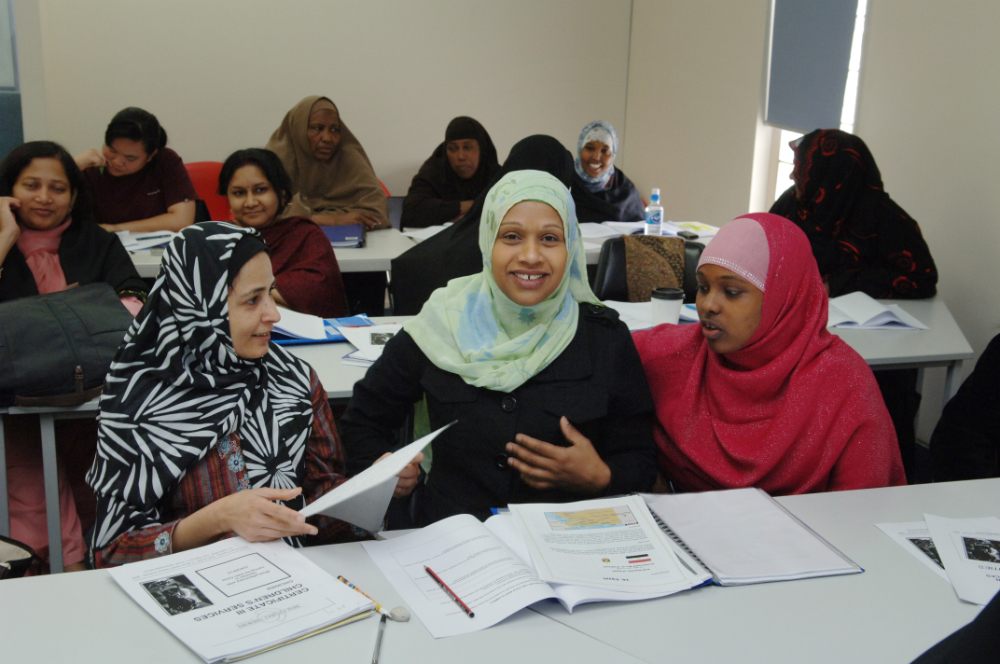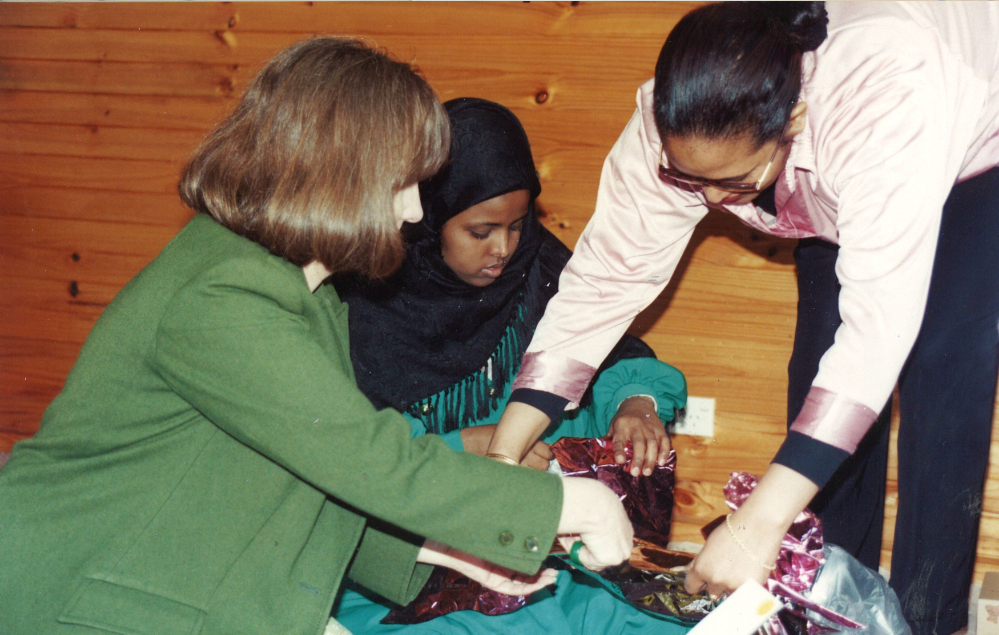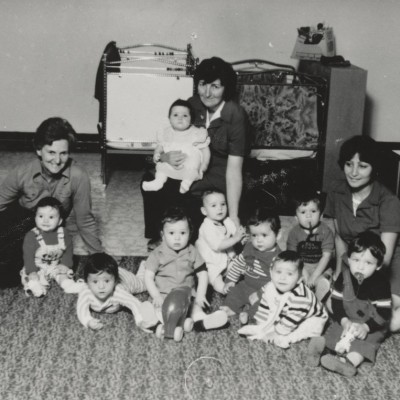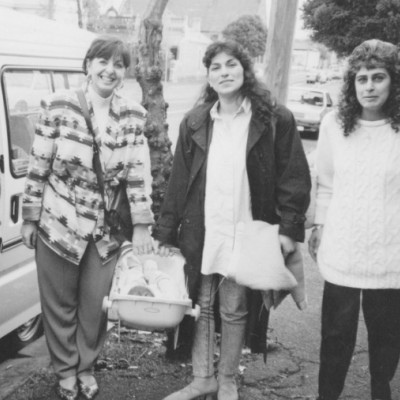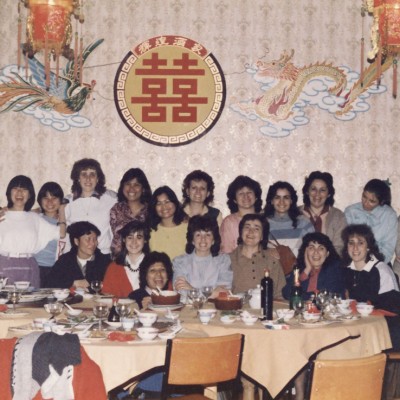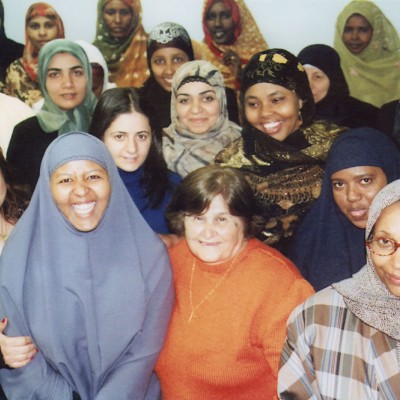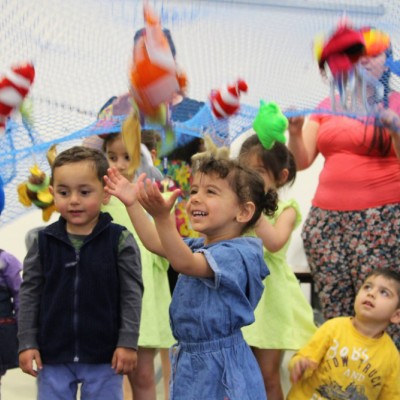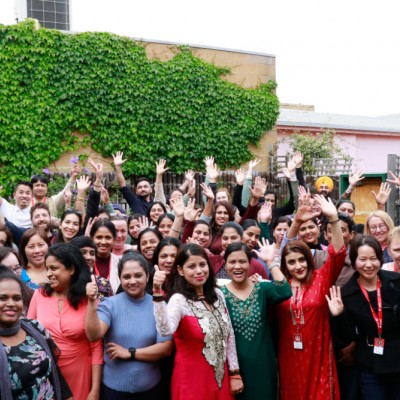Development of training initiatives
From 1995, VICSEG went through a period of diversification. VICSEG became not just a provider of advice and resources in the areas of children’s services and cross-cultural awareness, but an organisation that addressed the needs of the migrant and refugee family as a whole. VICSEG branched out to provide a range of services relating to parenting, education and employment. As the 1990s gave way to the new decade, VICSEG grew and expanded, developing training initiatives and well as community programming. This was a dynamic and exciting period.

The VICSEG team in charge of the New Work Opportunities Bilingual Child Care Project: Maree Raftis (front) with Amber Bloxidge (back left) and Fran Pruckner (right), 1996.
VICSEG’s early efforts to raise awareness and improve the cultural sensitivity of the childcare sector had been enormously successful. However, VICSEG recognised that, ultimately, the training and employment of qualified bilingual childcare workers would improve the situation further and empower ethnic communities to take charge of the care of their own children.
And so, in 1983, VICSEG began its involvement in professional training courses. Together with the Prahran College of TAFE, VICSEG began training migrant and refugee women as bilingual childcare workers. Over the next five years more than 50 long-term unemployed, non-English speaking migrant and refugee women were trained as childcare workers.
The philosophy was that these highly trained workers could ensure that all childcare services, whether ethno-specific or mainstream, were culturally and linguistically diverse. Once again, VICSEG was at the forefront in this undertaking: no other institution in Victoria was providing such specialised training.
In 1991, VICSEG organised a pilot ‘in-service’ training course in developing bilingual and bicultural programs for day care. The course was aimed at bilingual staff already working within ethnic-sponsored childcare centres and designed to give them the tools to implement bilingual and bicultural programs within their childcare centres.
This initiative was in line with the government’s ‘mainstreaming’ policy for childcare centres and encouraged a move away from ethno-specific centres designed for particular ethnic groups. The pilot course was so successful that course material continued to be used in subsequent training initiatives and was also provided to parents.
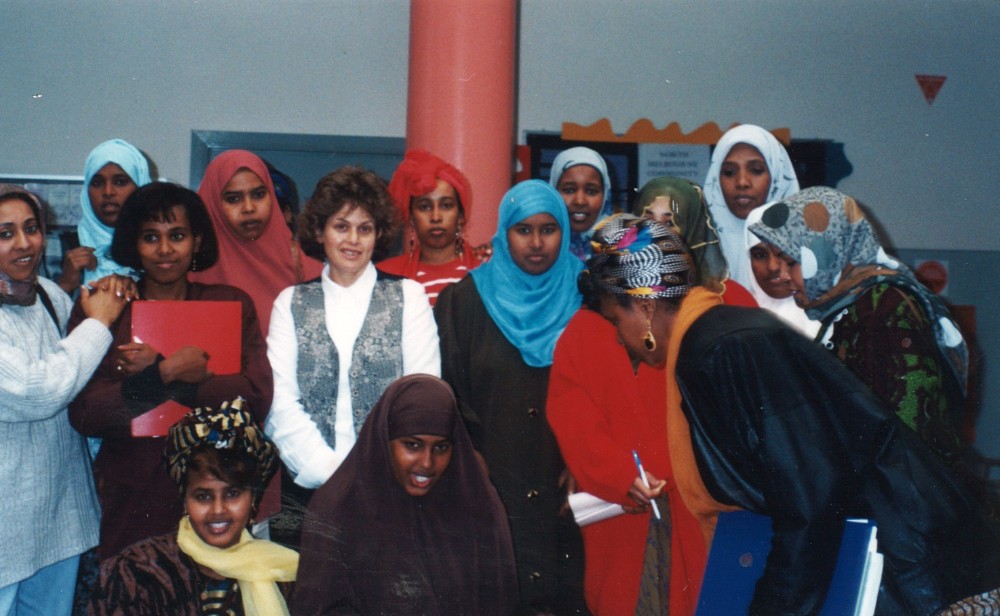
Participants in the Home-Based Child Care course delivered in late 1995 at Flemington Community Centre in partnership with Western Metropolitan Institute of TAFE.
On the back of this success, VICSEG embarked on further training expansion. This time, it was a very different challenge: the training of refugee women in childcare. This new area of focus began in 1995, when VICSEG employed three extra staff members of Somali, Hmong and mainland-Chinese backgrounds. They were employed to recruit participants interested in undertaking a bilingual Home-Based Childcare course.
A Home-Based Childcare training program was established for refugee women from the Horn of Africa. This 12-week course had 16 students with 12 graduating early. Four graduates gained employment as bilingual family day care workers and four others undertook further TAFE study in childcare. The success of this training program inspired VICSEG to explore more training options, but also made the organisation aware that to expand in this capacity it would need more funding.
A new opportunity
Wanting to support more training opportunities, VICSEG successfully applied for more funding and in February 1996, found itself with close to one million dollars to work with. Maree Raftis was employed to manage the new training programs and arrived with a wealth of experience from her previous work with the long-term unemployed through the Northern Neighbourhood House Network.
We wrote a submission up and my memory is we wrote a fairly modest submission to train 30 women, and we got a response back from the department saying we should do more than that, so I think we quadrupled it ... So I came in on that basis to run this very large project, which was enormously successful but quite challenging.
Maree Raftis, General Manager New Futures Training
A total of 60 refugee women, mostly from the Horn of Africa, Bosnia and the Middle East, undertook the new a 26-week New Work Opportunities Bilingual Childcare course to be trained as bilingual childcare workers and achieve their Certificate III in Children’s Services.
As opposed to earlier training programs that VICSEG had been involved with, New Work Opportunities was an employment-focused traineeship and students were paid to participate.
The program was enormously successful. In the main, participants were enthusiastic, highly motivated, and fully engaged in their training. Their work with children in childcare centres and schools was also highly valued especially where children of the same background were attending.
Employment outcomes were excellent, limited only by the impact of government changes to childcare. Within six weeks of completing the project, over 80% of the participants gained employment full-time, part-time or for substantial hours as casual/agency staff in childcare or related fields.VICSEG Annual Report 1996
The bilingual and bicultural teaching environment of the New Work Opportunities program was enhanced by VICSEG staff who provided language and communication support. Only two students failed to complete the course and by November 1996, an impressive 80 per cent of participants had gained some form of employment in childcare.

Amira Rachmanovic (second from right), VICSEG Bosnian Community Worker, with participants in the Bosnian Human Services Pre-Employment Program, 1998.
Although this first traineeship program was very successful, it was not without its challenges. This was largely because, at the time this program was introduced, VICSEG was not a Registered Training Organisation (RTO). As a result, it needed to work co-operatively with another RTO to provide the training, negotiating with them over teaching arrangements, resources and course content.
Additionally, a change in government resulted in VICSEG’s funding for training concluding. Despite a very positive relationship with government departments and a reputation for providing great services, not being an RTO, VICSEG struggled to gain funding for its own training programs.
If VICSEG was to continue and expand down this path, it would need to become a recognised RTO.
Resources:
Interview with Maree Raftis, 2 June 2011.
The Office of Children’s Services Review of VICSEG, December 1989.
VICSEG Annual Reports, 1995, 1996.
VICSEG, ‘Developing bilingual and bi-cultural programs for day care’ course materials.
VICSEG, ‘Towards a Language Policy’ and ‘Kooking with Kids’ training program booklets, 1992/1993.
